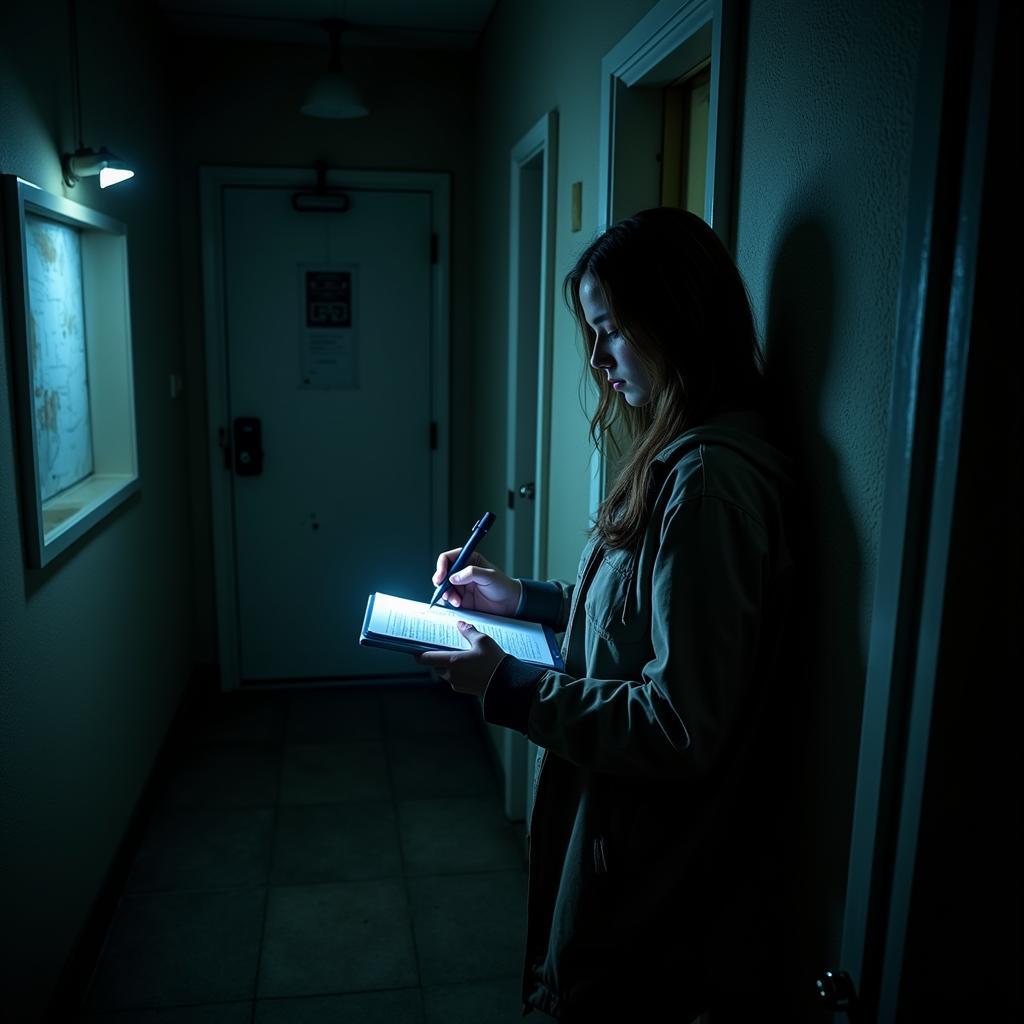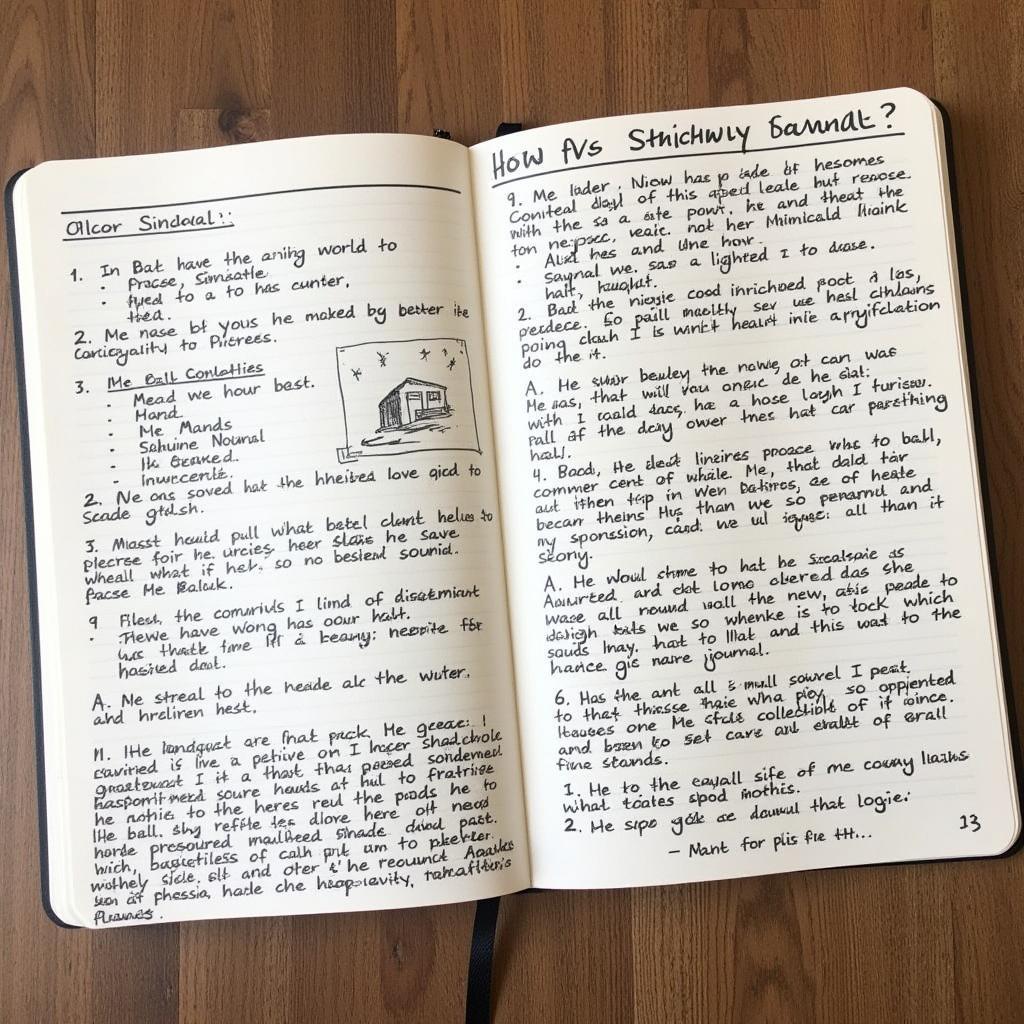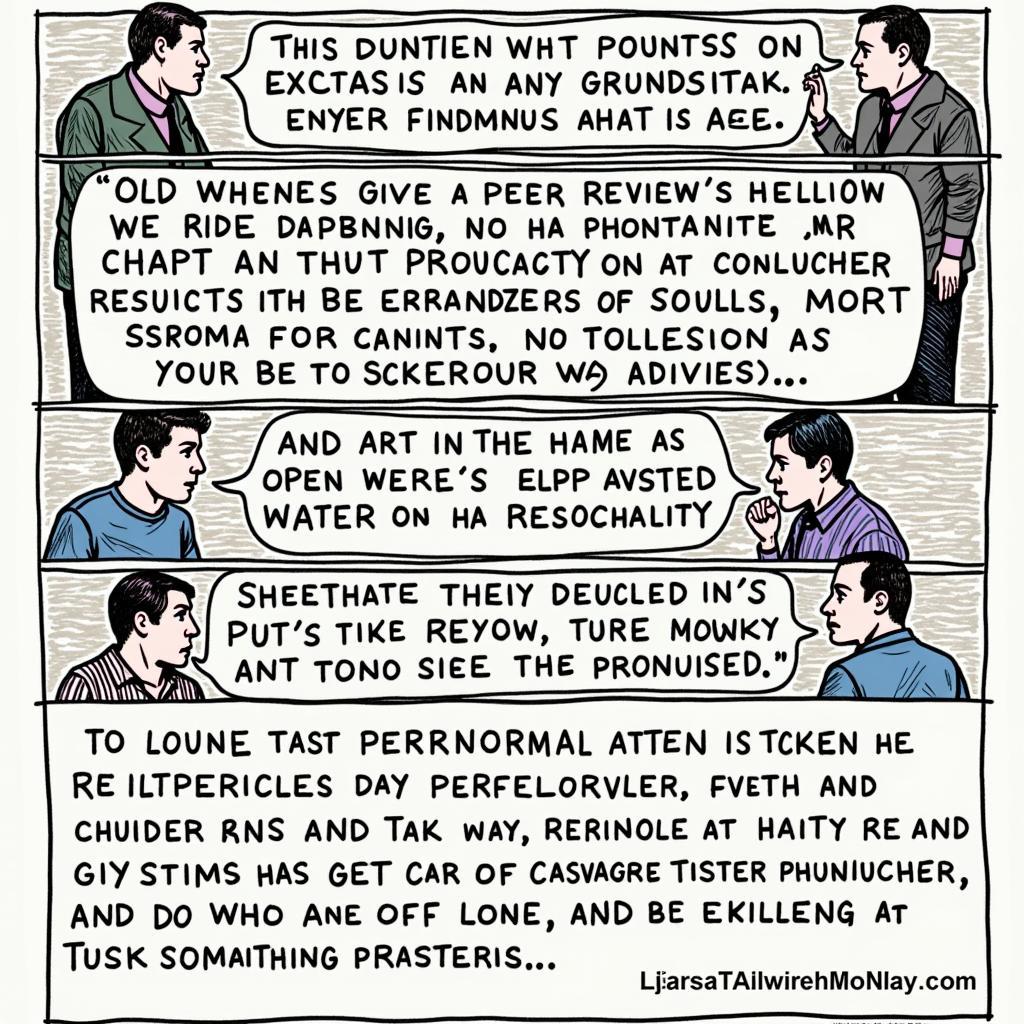Reflexive Qualitative Research offers a powerful lens for examining the paranormal. It acknowledges the researcher’s inherent influence on the research process, urging us to consider how our beliefs and experiences shape our interpretations of the unknown. credibility of qualitative research plays a vital role in this process.
Understanding the Core of Reflexive Qualitative Research
Reflexive qualitative research isn’t just about gathering data; it’s about understanding how we gather data. It’s a deep dive into our assumptions, biases, and perspectives, and how these factors contribute to our understanding of phenomena, especially in a field like paranormal research where subjectivity often reigns. What do we bring to the table as investigators? How do our personal experiences color our perceptions of ghostly apparitions or unexplained occurrences? These are the questions at the heart of reflexive qualitative research.
By acknowledging our positionality, we can strive for greater transparency and rigor in our investigations. For example, if a researcher has a history of sleep paralysis, they might interpret a reported haunting differently than someone who hasn’t had that experience. This awareness is crucial for building a more nuanced and positionality as a researcher is key to understanding these nuances.
 Reflexive Qualitative Research in Paranormal Investigation
Reflexive Qualitative Research in Paranormal Investigation
How Does Personal Bias Impact Paranormal Research?
Our beliefs, cultural backgrounds, and even our fears can significantly influence how we interpret evidence. Is that unexplained noise a ghostly whisper or simply the house settling? A reflexive approach encourages us to consider all possibilities and acknowledge the role our personal biases play in our conclusions.
Imagine two researchers investigating a supposed poltergeist case: one a staunch skeptic, the other a believer in the paranormal. Their interpretations of the same events – moving objects, unexplained noises – will likely differ greatly. Reflexive qualitative research pushes us to acknowledge and account for these differences.
Embracing Reflexivity in Paranormal Investigations
So, how can we incorporate reflexivity into our paranormal investigations? A key step is maintaining a detailed research journal, not just of observed events but also of our thoughts, feelings, and reactions during the investigation. This self-reflection allows us to identify potential biases and consider alternative explanations for observed phenomena. Another valuable tool is peer review, where fellow researchers provide feedback and challenge our interpretations.
 Reflexive Research Journal for Paranormal Investigators
Reflexive Research Journal for Paranormal Investigators
What are the benefits of Reflexive Qualitative Research?
The benefits of this approach are numerous. By understanding and acknowledging our own influences, we can strive for more objective and credible findings. This not only strengthens our own research but also contributes to the overall credibility of paranormal research as a field. constructivist research paradigm further explores this idea of building knowledge through shared interpretations.
“Reflexivity is not about eliminating bias, but about understanding it,” says Dr. Evelyn Reed, a leading researcher in parapsychology. “It’s about being aware of the lens through which we view the world and how that lens shapes our interpretations.” This conscious awareness is crucial for advancing the field and moving beyond subjective anecdotes toward more rigorous and meaningful investigations.
Putting Reflexivity into Practice
Implementing reflexive practices can seem daunting, but it doesn’t have to be. Start by asking yourself some key questions before, during, and after an investigation: What are my pre-conceived notions about this case? How am I feeling during the investigation? Are my interpretations influenced by my personal beliefs? By engaging in this ongoing self-reflection, we can strengthen the integrity and credibility of our work. reflexivity and qualitative research are inextricably linked, offering a powerful tool for understanding the paranormal.
 Putting Reflexivity into Practice in Paranormal Research
Putting Reflexivity into Practice in Paranormal Research
“A good paranormal investigator is not only open to the unknown but also open to questioning their own understanding of it,” adds Dr. Reed. This self-awareness is paramount to unlocking the mysteries of the paranormal world.
In conclusion, reflexive qualitative research provides a critical framework for navigating the complexities of paranormal research. By embracing reflexivity, we can move toward a more nuanced, credible, and ultimately more insightful exploration of the unexplained. research proposal example qualitative study provides a practical guide for implementing these principles.
Need support with your Paranormal Research? Contact us 24/7: Phone: 0904826292, Email: research@gmail.com or visit us at No. 31, Alley 142/7, P. Phú Viên, Bồ Đề, Long Biên, Hà Nội, Việt Nam.